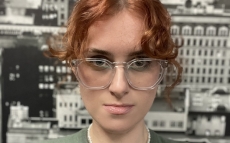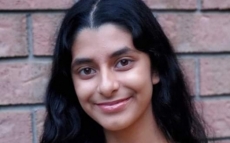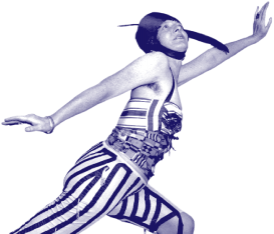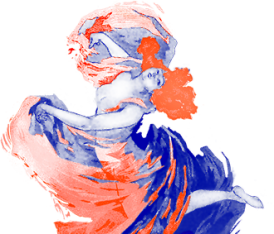HomeNews & Events2012December Modernist Studies Association...
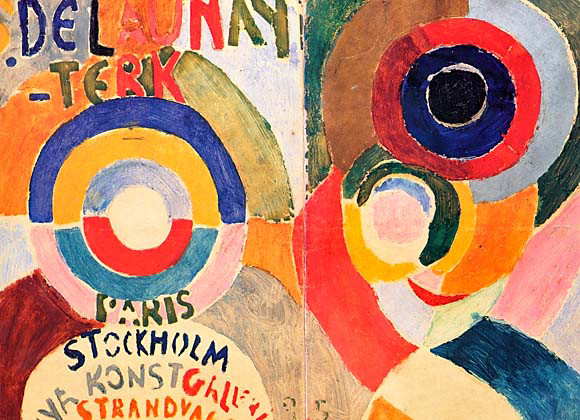
The organizers invite proposals for panels, round tables and seminars for inclusion in the fifteenth annual meeting of the Modernist Studies Association, to be held at the University of Sussex, Brighton, UK, August 29-September 1, 2013. We welcome proposals on any topics related to modernist studies broadly conceived, and would like to particularly encourage interdisciplinary proposals and participants from outside the UK. We are keen to receive proposals relating to the conference theme, especially for round tables and seminars, but the criteria for selection will be the overall quality of the proposal rather than relevance to the theme.
Modernism radically breaks from the ordinary and the received, staking its claims on making it new. But how might modernism also engage with the ordinary, the quotidian, the mundane or the banal? What kinds of events are precipitated by this conjunction? "Everydayness and the Event" encourages the exploration of philosophical subjects such as time, space and subjectivity; political questions about private versus public; psychoanalytic issues such as emotion and habit; and aesthetic questions of ordinariness (diary-writing, reportage, lists) and novelty (performance, intervention, the newsworthy).Topics of growing significance in modernist studies, the everyday and the event might be considered together or separately to include, for example, domesticity, objects, food, fashion, waste, public engagement, responses to events of local, national and international significance, the traumatic event and modernism as itself a happening.
Seminar Proposals, February 15, 2013
Panel Proposals, March 15, 2013
Round Table Proposals, March 15, 2013
Exhibition Proposals, March 15, 2013
Deadline: February 15, 2013
Seminars are among the most significant features of the MSA conference. Participants write brief "position papers" (5-7 pages) that are circulated and read prior to the conference. Because their size is limited to 15 participants, seminars generate lively exchange and often facilitate future collaborations. The format also allows a larger number of conference attendees to seek financial support from their institutions as they educate themselves and their colleagues on subjects of mutual interest. Seminars are two hours in length. Because seminars led solely by graduate students are not likely to be accepted, we encourage interested graduate students to invite a faculty member to lead the seminar with them.
There are no limits on topics, but past experience has shown that the more clearly defined the topic and the more guidance provided by the leader, the more productive the discussion. "Clearly defined" should not be confused with "narrow," as extremely narrow seminar topics tend to exclude many potential applicants. To scan past seminar topics, go to the Conference Archives http://msa.press.jhu.edu/conferences.html on the MSA website, click the link to a prior conference, and then click on "Conference Schedule" or "Conference Program." You'll find seminars listed along with panels and other events. Topics related to the conference theme are especially welcome and might include, for example, modernism and food, modernism and aging, or modernism and boredom. Seminar leaders might also consider proposing a topic based around Mass Observation or any of the specific events of modernism.
Seminar proposals must be submitted via email and must include the following information. Please assist us by sending this information in exactly the order given here:
- Use as a subject line: SEMINAR PROPOSAL / [LAST NAME OF SEMINAR LEADER] (e.g., SEMINAR PROPOSAL / GORMAN)
- List the seminar leader's name, institutional affiliation, discipline, position or title, mailing address, phone, fax, and e-mail address
- Provide a brief curriculum vitae (including teaching experience) for the seminar leader
- Give a brief description (up to 100 words) of the proposed topic
Deadline: March 15, 2013
- We encourage interdisciplinary panels and discourage panels on single authors.
- In order to encourage discussion, preference will be given to panels with three participants, though panels of four will be considered.
- Panels composed entirely of participants from a single department at a single institution are not likely to be accepted.
- Graduate students are welcome as panelists. However, panels composed entirely of graduate students are less likely to be accepted than panels that include postdoctoral presenters together with graduate students.
- Use as a subject line: PANEL PROPOSAL / [LAST NAME OF PANEL ORGANIZER] (e.g., PANEL PROPOSAL / GORMAN)
- Session title
- Session organizer's name, institutional affiliation, discipline, position or title, mailing address, phone, fax, and e-mail address
- Chair's name, institutional affiliation, discipline, position or title, and contact information (if you do not identify a chair, we will locate one for you)
- Panelists' names, paper titles, institutional affiliations, disciplines, positions or titles, and contact information
- A maximum 500-word abstract of the panel as a whole
- Brief (2-3 sentence) scholarly biography of each panelist
Deadline: March 15, 2013
All topics will be considered for round tables, but we are especially keen to encourage proposals which develop the theme of the conference. Unlike panels, which generally feature a sequence of 15-20 minute talks followed by discussion, round tables gather a group of participants around a shared concern in order to generate discussion among the roundtable participants and with the audience. To this end, instead of delivering full-length papers, participants are asked to deliver short position statements in response to questions distributed in advance by the organizer, or to take turns responding to prompts from the moderator. The bulk of the session should be devoted to discussion. No paper titles are listed in the program, only the names of participants.
- Roundtables may feature as many as 6 speakers.
- We particularly welcome roundtables featuring participants from multiple disciplines, and we discourage roundtables on single authors.
- Panels composed entirely of participants from a single department at a single institution are not likely to be accepted.
- Graduate students are welcome as speakers. However, roundtables composed entirely of graduate students are less likely to be accepted than roundtables that include postdoctoral presenters together with graduate students.
- Use as a subject line: ROUNDTABLE PROPOSAL / [LAST NAME OF ROUNDTABLE ORGANIZER] (e.g., ROUNDTABLE PROPOSAL / GORMAN)
- Session title
- Session organizer's name, institutional affiliation, discipline, position or title, mailing address, phone, fax, and e-mail address
- Moderator's name, institutional affiliation, discipline, position or title, and contact information (if you do not identify a moderator, we will locate one for you)
- Speakers' names, institutional affiliations, disciplines, positions or titles, mailing addresses, phones, faxes, and e-mail addresses
- A maximum 500-word rationale for the roundtable
- Brief (2-3 sentence) scholarly biography of each speaker
Deadline: March 15, 2013
The MSA recognizes that some varieties of endeavour in modernist studies do not lend themselves to exposition in seminars, panels, or round tables. If you have work you would like to share at the conference that would be better conveyed through a poster, demonstration, or some other format, please contact the Program Committee Chair, Victoria Rosner, at vpr4@columbia.edu as soon as possible and no later than March 15, 2013.




